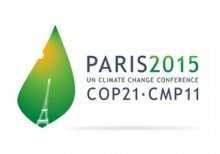Despair and fury are my reactions to the migration crisis. Despair because 25 years ago I was teaching ‘A’ level students that failure to tackle climate change and inequality would exacerbate political instability and lead to mass migrations. And fury because if I knew this, so must those with the power to avert this crisis; but they ducked the challenges.
Twenty five years ago, instead of addressing increasing levels of CO2 emissions and increasing inequality between the global north and south, decision makers were engrossed in the World Trade Organisation’s talks that finalised what we now call globalisation; the global free market economy. We refer to this model of global competition, where the biggest and most powerful will always win, as if there have never been, and never will be, any alternatives.
So giant transnationals are pitched against the smaller emerging economies and the smaller emerging businesses – the ones that have the real potential to innovate and deliver the economic, political and environmental sustainability and security that everyone on this planet needs.
Without doubt this model delivered what it promised. Prices for 4/5 of the world’s population have been driven down in relative terms enabling them to enjoy a frenzy of consumption of cheap disposable goods while the super- rich owners of these giant corporations enjoy a profits and bonus frenzy enabling them to buy goods and services for prices most of us can’t begin to understand. And C02 emissions have soared.
Meanwhile the other 1/5 of the world’s population, well over 1bn people, scattered across the global south, are left unable to feed themselves. More often than not living under ruthless, corrupt regimes, either their water supplies are drying up or their soils are burning or becoming swamped by the rising oceans. Their cash crops can no longer sustain them as they struggle to sell them on the global commodity markets against the giant corporate producers. But unless their governments or government’s enemies are bombing or persecuting them, these economic migrants have no right to move and should stay where they are.
So the nightmare has begun. In Europe our minds are focussed on the migrants arriving on our southern shores and borders. But people across the global south in Latin America and Asia have also had enough of waiting for the education, health care, shelter and the means to grow enough food for their families. These prerequisites for social and economic security would enable most of the world’s migrants to remain settled where they are born. Instead 232m desperate people are migrating every year.
For Europe and the rest of the global North, many politicians would rather we differentiate between ‘genuine asylum seekers’ and economic migrants. But these migrations will continue until global inequality and climate change are tackled. Would any of us remain in a barren, parched village, watching our children starve simply because we were not being bombed or persecuted enough?
Twenty five years ago I knew a mass migration was inevitable. The current one is linked to the war in Syria. But if and when this ends, the migration won’t. The richest 1% own 51% of the world’s resources. While migrants are drowning in the same water where super yachts that cost £250,000 simply to fill with diesel are moored and while we continue to flood the atmosphere with C02 and believe we can bomb our way to peace, global migration, and with it political instability, can only increase.
One of the single greatest sources of CO2 is the deforestation associated with gathering and burning wood for cooking – most of this in places well suited to solar power. It is in the interests of every global citizen that resources and the profits of production are more fairly spread and used for the common good. We urgently need an international agreement to ensure every individual and company is unable to hide their wealth and profits from the societies in which those profits are made. And we urgently need a robust global climate agreement in Paris. These are inextricably linked. Another five years, let alone twenty five, will be too late.
Jane Burnet







